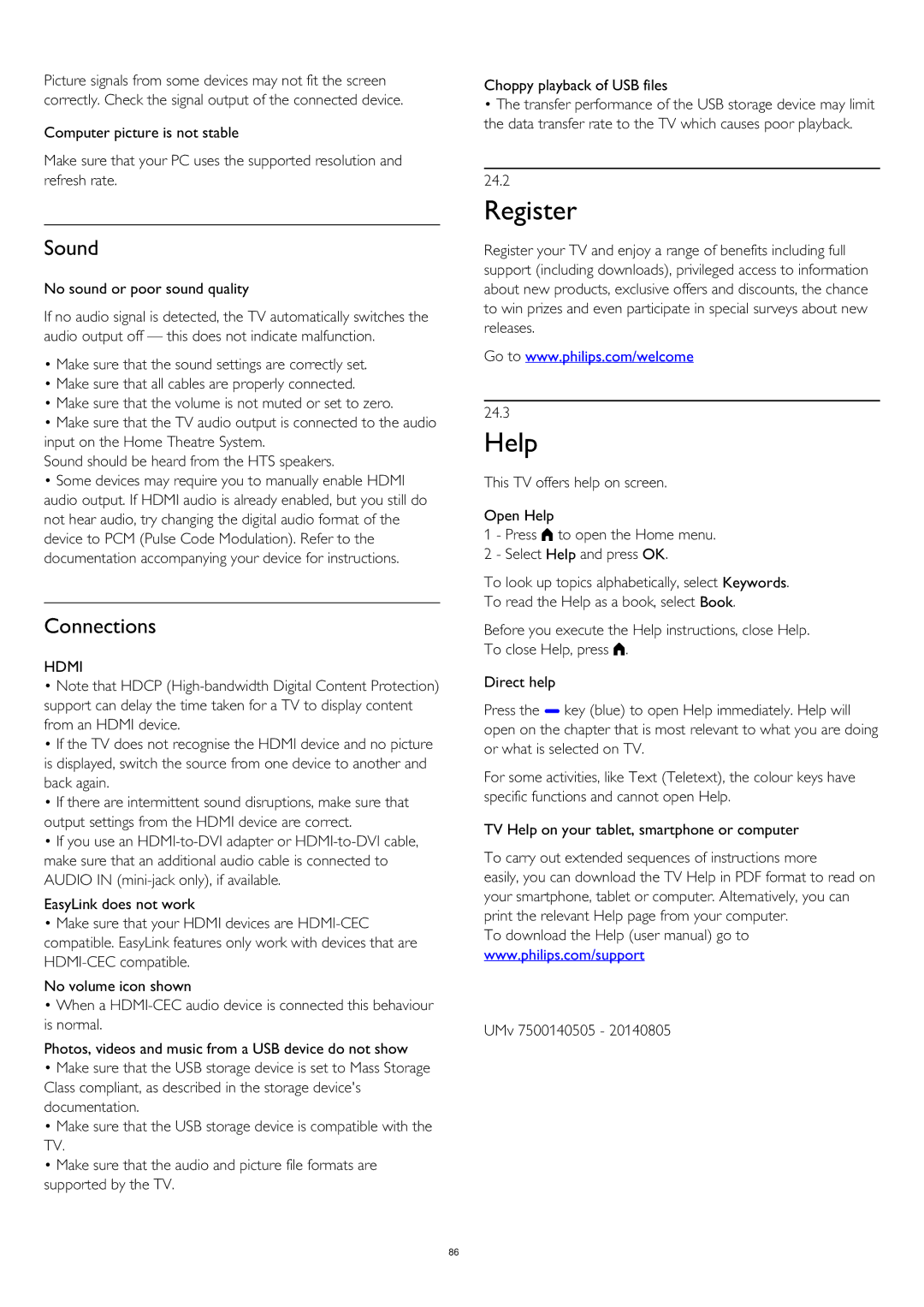
Picture signals from some devices may not fit the screen correctly. Check the signal output of the connected device.
Computer picture is not stable
Make sure that your PC uses the supported resolution and refresh rate.
Sound
No sound or poor sound quality
If no audio signal is detected, the TV automatically switches the audio output off — this does not indicate malfunction.
•Make sure that the sound settings are correctly set.
•Make sure that all cables are properly connected.
•Make sure that the volume is not muted or set to zero.
•Make sure that the TV audio output is connected to the audio input on the Home Theatre System.
Sound should be heard from the HTS speakers.
•Some devices may require you to manually enable HDMI audio output. If HDMI audio is already enabled, but you still do not hear audio, try changing the digital audio format of the device to PCM (Pulse Code Modulation). Refer to the documentation accompanying your device for instructions.
Connections
HDMI
•Note that HDCP
•If the TV does not recognise the HDMI device and no picture is displayed, switch the source from one device to another and back again.
•If there are intermittent sound disruptions, make sure that output settings from the HDMI device are correct.
•If you use an
EasyLink does not work
•Make sure that your HDMI devices are
No volume icon shown
•When a
Photos, videos and music from a USB device do not show
•Make sure that the USB storage device is set to Mass Storage Class compliant, as described in the storage device's documentation.
•Make sure that the USB storage device is compatible with the TV.
•Make sure that the audio and picture file formats are supported by the TV.
Choppy playback of USB files
•The transfer performance of the USB storage device may limit the data transfer rate to the TV which causes poor playback.
24.2
Register
Register your TV and enjoy a range of benefits including full support (including downloads), privileged access to information about new products, exclusive offers and discounts, the chance to win prizes and even participate in special surveys about new releases.
Go to www.philips.com/welcome
24.3
Help
This TV offers help on screen.
Open Help
1 - Press to open the Home menu.
2 - Select Help and press OK.
To look up topics alphabetically, select Keywords. To read the Help as a book, select Book.
Before you execute the Help instructions, close Help. To close Help, press .
Direct help
Press the key (blue) to open Help immediately. Help will open on the chapter that is most relevant to what you are doing or what is selected on TV.
For some activities, like Text (Teletext), the colour keys have specific functions and cannot open Help.
TV Help on your tablet, smartphone or computer
To carry out extended sequences of instructions more
easily, you can download the TV Help in PDF format to read on your smartphone, tablet or computer. Alternatively, you can print the relevant Help page from your computer.
To download the Help (user manual) go to www.philips.com/support
UMv 7500140505 - 20140805
86
